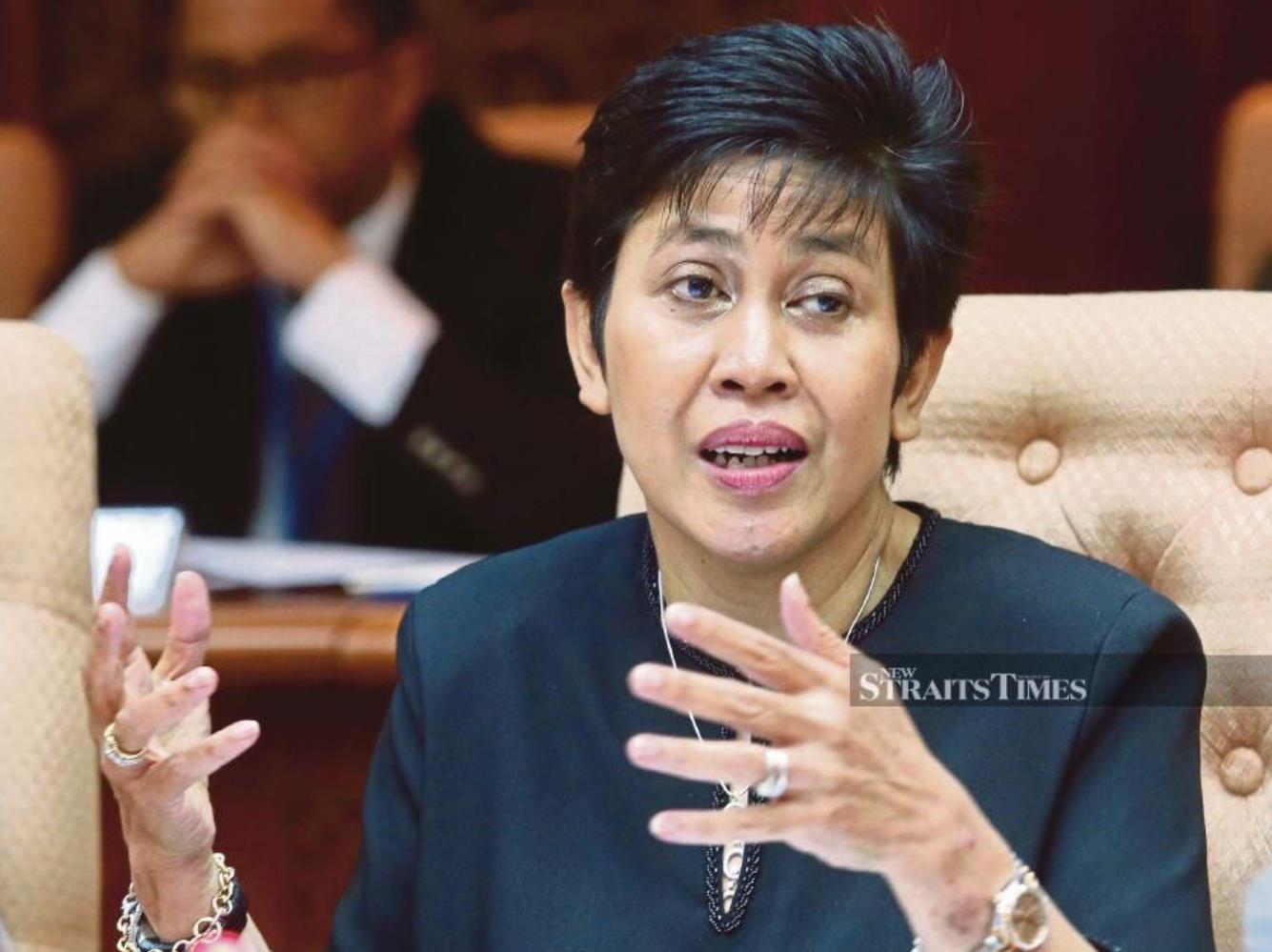2020 struggles fading, Malaysia can expand up to 7.5pct in 2021: Economists

April 1, 2021 @ 11:20am
Farah Adilla and Azanis Shahila Aman
KUALA LUMPUR: Malaysia can achieve the top end of Bank Negara Malaysia's gross domestic product (GDP) growth forecast of 7.5 per cent this year, economists said.
The projection looked attainable based on, among others, the country's strong trade numbers and progress in the Covid-19 vaccination, they added.
Bank Negara governor Datuk Nor Shamsiah Mohd Yunus said Malaysia's economy was expected to expand between six per cent and 7.5 per cent this year against a 5.6 per cent contraction in 2020.
The GDP was likely to return to pre-Covid-19 levels by mid-2021, she said at a virtual briefing on the release of Bank Negara's Annual Report 2020 today.
This will be supported by the improving external demand amid technology upcycle, less stringent containment measures and vaccine rollout, gradual improvement in labour market conditions, as well as continued policy support for households and businesses.
"In our forecast, we assumed herd immunity will only be achieved in the first quarter of 2022. We also assumed that the international borders will remain closed for this year and the Movement Control Order (MCO) will be highly targeted," she added.
Bank Islam chief economist Dr Mohd Afzanizam Abdul Rashid said the latest export numbers came in strong at more than 17 per cent growth in February.
Exports accelerated by 17.6 per cent year-on-year to RM87.57 billion in February as Malaysia trade performance reached a new high with the trade surplus widening to RM17.86 billion.
"The ongoing vaccination program whereby the government has increased the allocation from RM3 billion to RM5 billion also indicates that the country will stand a better chance to achieve the herd immunity within the stipulated time frame.
"This would allow the reopening of the economy, leading to more lively economic activities," Afzanizam told the New Straits Times.
Putra Business School business development manager Associate Professor Dr Ahmed Razman Abdul Latiff said Bank Negara had cautiously set the minimum 6.0 per cent growth from 6.5 per cent targeted by the government due to the uncertainty caused by Covid-19.
Razman said the local economy would be boosted if herd immunity for Malaysia's population was attained and the number of daily infections reduced to the minimum by the year-end.
This will mean more sectors can be allowed to operate at normal capacity and travel restriction be relaxed across districts and states.
"This will then allow the opening of international borders gradually and increase the economic activities to the pre-pandemic level.
"Therefore it is imperative for the government to focus on achieving this herd immunity and low cases of infection by intensifying campaigns for mass vaccination and adhering to health standard operating procedure," he said.
Bank Muamalat Malaysia Bhd economist Izuan Ahmad said Malaysia's economic performance in the first quarter (Q1) of 2021 might be compromised by the recent Movement Control Order 2.0 and renewed restrictions in key countries due to resurgence in Covid-19 cases.
"By factoring in the restrictions in Q1 2021 in particular, the full year GDP growth forecast for the country is estimated at 5.5 per cent year-on-year, based on projected RM700 million loss per day during the MCO 2.0 period.
"Going forward, with positive elements such as a successful nationwide vaccination programme and expansionary policies, both demand and supply sides are expected to improve particularly from the second quarter (Q2) 2021 onwards," he said.
Meanwhile, Nor Shamsiah said monetary policy in 2021 would remain accommodative to support an enhanced and sustained economic growth.
Headline inflation, she said, was expected to average between 2.5 per cent and four per cent in 2021, from a contraction of 1.2 per cent in 2020, mainly due to higher global oil prices.
She said although headline inflation was expected to rise, it would be driven mainly by supply side factors.
Nor Shamsiah said underlying price pressures, on the other hand, would remain subdued with core inflation projected to be between 0.5 per cent and 1.5 per cent amid spare capacity in the economy.
She said even with the Overnight Policy Rate at its current historical low of 1.75 per cent, monetary policy space remained adequate to provide additional support to the economy if needed.
